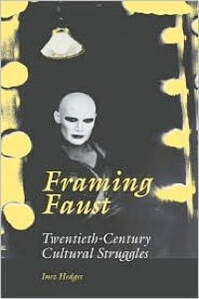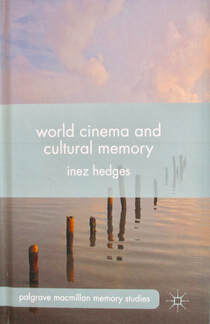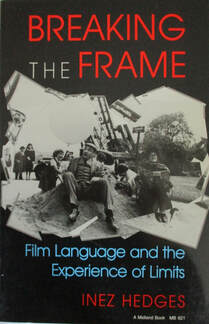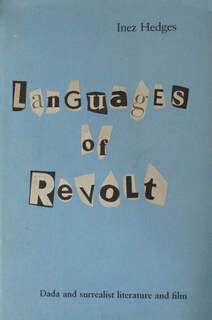Books
Staging History from the Shoah to Palestine: Three Plays and Essays on WWII and its Aftermath
(Palgrave Macmillan 2021)
(Palgrave Macmillan 2021)
|
|
Summary: This book is a contribution to the emerging field of research-based performance, which seeks to gain a wider audience for issues that are crucial to our understanding of history and to informing our future actions. The book examines the role of theater in portraying the Shoah in France, the French Resistance, and the Israeli-Palestinian conflict. Each of the three chapters consists of an original dramatic work by the author and an accompanying critical essay. Endorsements: This book is a quite extraordinary achievement. It brings together scholarship—the essays on the history of theater—and creative art, in a highly original and moving form. I know of no equivalent to this attempt to “stage history,” combining history of the theater, literature, historiography, art, and living theater. Michael Löwy, Emeritus Research Director, CNRS, Paris For those educators interested in interdisciplinary-integrative learning about the Shoah and its aftermath, Inez Hedges’ book provides valuable information and stimulating plays that promote the development of cross-disciplinary, inquiry-based courses, capstone courses, and experiential activities. Hedges provides readers with the contexts and narratives that will encourage thoughtful inquiries, empathetic connections, and human understanding. Nancy Kindelan, Emerita Professor of Theatre, Northeastern University Inez Hedges’ work testifies to the necessity of today's playwrights to grapple with important political/historical issues. Whether it's the Nazi occupation of France or the Israeli occupation of Palestine, Hedges mines the rich ores of such crises to produce bracing, engaging and engaged theatre that glitters in the darkness of our times. David Gullette, Literary Director, The Poets' Theatre, Boston |
World Cinema and Cultural Memory
(Palgrave Macmillan memory series, 2015)
(Palgrave Macmillan memory series, 2015)
|
This book discusses the role of cinema within a global perspective that spans five continents, and proposes an original typology of cultural memory. Topics include the memory of the Holocaust and of Hiroshima, of the Algerian war of independence and of the Spanish Civil War; of the Allende legacy in Chile, the utopian dreams of 1968, as well as identity formation in Palestine and in the African diaspora.
Reviewed in New Politics, Socialism and Democracy and others From the review by Matt Callahan, Socialism and Democracy, 01 September 2016, Vol.30(3), p.137-142 “The breadth and depth of the cinematic and literary works presented is extraordinary […] But more is at stake than films and filmmaking. The arguments being advanced are ultimately philosophical and neither limited to nor confined by art, science, or what might be constructed as the ‘proper’ domains of memory and history. Indeed, what Hedges wants us to ponder are both aesthetics as a capacity to shape human beings…along with the dialectics of transformation evident in artistic expression and praxis […] Hedges is asking us to go deeper than the surface of either cinema or memory to learn how process, struggle, creativity and the dream of a better life flow in a Heraclitean river than none can step in twice.” |
Framing Faust: 20th Century Cultural Struggles
(Carbondale: Southern Illinois Univ. Press, 2005)
(Carbondale: Southern Illinois Univ. Press, 2005)

|
This interdisciplinary cultural history that encompasses film, literature, music, and drama follows the thread of the Faustian rebel in the major intellectual currents of the last hundred years. Faust and his counterpart Mephistopheles are presented as antagonistic—yet complementary—figures whose productive conflict was integral to such phenomena as the birth of narrative cinema, the rise of modernist avant-gardes before World War II, and feminist critiques of Western cultural traditions. Using a cultural studies approach, the book reveals how the myth applies to contemporary structures of power and hegemony. It makes the argument that claims to the Faustian legacy permeated the struggle against Nazism in the 1930s while infusing not only the search for socialist utopias in Russia, France, and Germany, but also the quest for legitimacy on both sides of the Cold War divide after 1945.
Chapters: Faust and Early Film Spectatorship German Fascism and the Contested Terrain of Culture Socialist Visions: Faust and Utopia Gendering Faust Anti-Fausts and the Avant-Garde Oneiric Fausts: Repression and Liberation in the Cold War Era Conclusion: Reframing the Faustian Question Appendices: Filmography and Bibliography Excerpts from reviews: David Gullette in Socialism and Democracy: The story of Faust is one of the great floating signifiers of the last 500 years. Depending on what you want from the story, the protagonist can be seen as a rebellious over-reacher whose quest for forbidden knowledge — gained by making an unholy pact with the Devil — is rightfully punished; or perhaps he is the ultimate dissident — a seeker after truth who rejects the oppressive and blindered worldview of the traditional hegemonic elite. As for Faust’s antagonist, Mephistopheles can be seen as the arch-tempter, intent on destroying Faust by playing on his innate hunger for knowledge; or perhaps he is Faust’s anti-self, his opposite equal twin brother, and a fellow dissenter himself, who facilitates the protagonist’s spectacular act of defiance […] Onto this fertile terrain Inez Hedges brings her formidable gifts as a scholar of film, as a cultural critic, as a historian of political discourse both Left and Right, as an appreciator of “plural feminisms,” and as an incisive student of the avant-garde. Framing Faust is in fact a dazzling reading of the politics, culture and intellectual struggles of the 20th century, with a masterful guide pointing out to us new aspects of things we thought we knew well, and new things we are glad to be apprised of. What we carry away from the book is an enlivened sense that a myth like the Faust story “can be seen as a battleground on which opposing ideologies fight for power — in essence as the site of dialectical struggle.” Bettina Mathes in Comparative Literature Studies, Vol. 44, No. 3, 2007. “The historical and geographical scope of Framing Faust is broad: it reaches from early silent French cinema to Stan Brakhage’s experimental Faust films; from Europe at the turn of the century to post-war America; from German fascism and Nazi propaganda to East German socialism and Russian Stalinism. Readily available, canonized works such as Klaus Mann’s Mephisto and Thomas Mann’s Doktor Faustus, G. W. Pabst’s, F. Murnau’s and Istvan Szabo’s films (Der Student von Prag, Faust, Mephisto) are related to by now forgotten or often marginalized instances of the Faustian, such as George Melies’s early Faust films, German Nazi ideologue Georg Schott’s Faust in heutiger Schau, Else Lasker-Schüler’s play Ichundich and Hélène Cixous’s Revolutions pour plus d ’un Faust […] Framing Faust is a valuable and inspiring contribution to both Faust studies and twentieth century cultural history.” Robin Latimer at Amazon.com: Hedges' history as a scholar has been intimately connected to European critical traditions, but she avers that she is writing for lay and scholar (in true Faustian divided manner) and keeps the promise (unlike most of the Mephistopheles she unearths). She leaves no concept unturned, however, and demonstrates again what has always been her strength: close, meticulous reading of literary and visual texts with a consistent reference to their mythical and topical elements. Her analytical work is as good as that of Czeslaw Milosz, though her style is much more journalistic and demure than his […] The message of the book is that mining the prime cultural narrative of Faust and Mephistopheles is worthwhile, a quiet message but intensely valuable for those interested in the concept that dialogues in culture about culture can create culture. Hedges offers the reader the chance to investigate with her the broadest framework for cultural progress that she has been able to find in her intellectual journey. This book is a gifted scholar's gift. I find it can read quickly or slowly, an awesome quality indeed. I have permitted this book to alter some of my thinking and teaching and recommend that others in the humanities (and other fields) do so as well. |
Breaking the Frame: Film Language and the Experience of Limits
(Bloomington: Indiana Univ. Press, 1991)
(Bloomington: Indiana Univ. Press, 1991)
Languages of Revolt: Dada and Surrealist Literature and Film
(Durham: Duke University Press, 1983)
(Durham: Duke University Press, 1983)
|
“One of the most novel interpretations of Dada and surrealist techniques in years”
Mary Ann Caws, the Graduate School of the City University of New York |
Summary: Presents a new understanding of the processes by which one makes sense of the radical visual and narrative techniques that characterize Surrealism and Dada; combines insights from semiotics, psychoanalysis, linguistics, and Russian formalism. The computer program that successfully generates sentences resembling the tropes of “automatic writing” is an early experiment in digital humanities research.
Chapters: Surrealism and the Alchemy of the Word The revolt: breaking the frames The language: frame-making Surrealist metaphor and thought Image and ideology: the dynamics of artistic exchange Appendix: a computer program for generating surrealist “automatic writing” Comments: “One of the best general studies I have ever seen of the large, compelling topic of literary surrealism. It is superior for detail and theoretical rigor.” (Albert Cook, Brown University) Reviewed in The Times Literary Supplement, University of Hartford Studies in Modern Literature, Film Quarterly, Journal of Modern Literature, The Centennial Review, World Literature Today, The French Review, Revue belge de philologie et d'histoire. Keith Aspley, Univ. of Edinburgh in The Modern Language Review, Vol. 79, No. 3 (Jul., 1984), pp. 715-716 “In this stimulating book Inez Hedges addresses herself to problem of defining a theory of Dadaist and Surrealist expression which takes into account certain new developments in the human sciences; the areas of research she employs are those of ‘frame theory’ and natural-language processing.” |



